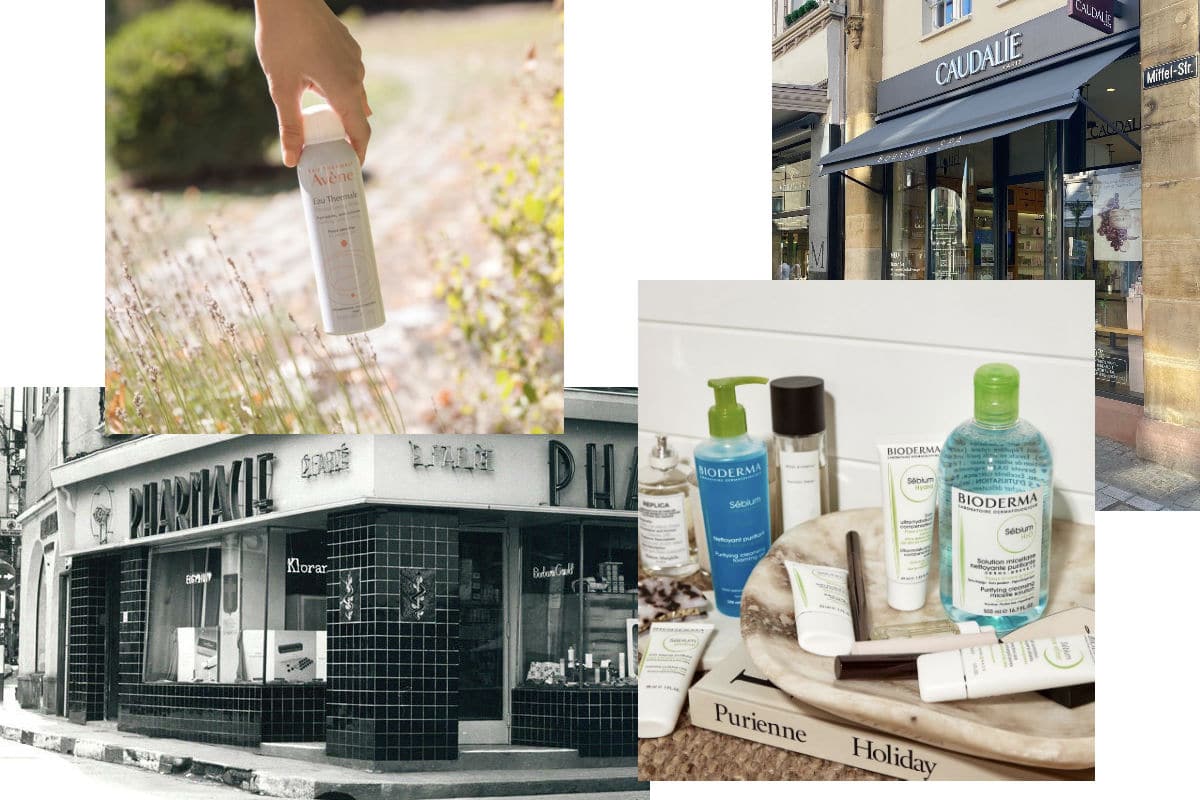
You've probably seen it on Pinterest. People are talking about it on Instagram. And of course, it's popping up on Tik Tok. Skinimalism or skin minimalism is the latest trend taking over the beauty zeitgeist.
But this ain't your average beauty trend. It's not one that wants to see you pluck your eyebrows thinner or dye your hair. Instead this trend is about less is more. Buying less, wearing less and using less. And it has the expert tick of approval - this trend is even backed by dermatologists.
To find out more, we spoke to cosmetic chemist and Biologi’s Dermal Specialist Lucy Macdougald. She breaks down everything you need to know about skinimalism below.
In layman's terms, what is skin minimalism in skincare or makeup or 'skinimalism' as it's being called?
Skin minimalism is a trend that is essentially all about loving the skin you’re in and letting that be the focus (rather than hiding behind layers of makeup). It’s a philosophy of skincare that adopts a minimal approach by letting your skin shine through. That means not hiding your perceived “flaws” such as natural freckles and instead allowing your natural features and complexion be your hero look. Part of skin minimalism puts a focus on utilising products that really benefit the skin so you don’t feel the need to cover up or wear as much make-up. The practice of reducing the number of products you use on your face sits within the theory that your skin will then have the ability to repair and rejuvenate on its own.
Why is this trend something that many people are moving towards? Is it better for our skin? How?
It’s a trend many people are moving towards for many reasons. Firstly, placing an emphasis on achieving great skin is certainly a ‘trend’ in the industry as we’re seeing a move away from heavy makeup looks. The ‘no makeup’ look has been trending for quite some time and skin minimalism is an evolution of that. Secondly, thanks to COVID-19, things like lockdown and going out less often, many people are finding themselves inadvertently practicing skin minimalism. Being at home more often has meant many people are wearing less makeup day-to-day and as a result noticing an improvement on their skin.
Are there any skin types that might particularly benefit from this?
Yes, most skin types will benefit from this, however it is great for troublesome or acne prone skin. Many people don’t realise that the products we use can cause the skin to get itself in a vicious cycle. Certain ingredients in many skin care products such as moisturisers and toners are notorious for clogging pores and causing break outs. Some products can also cause excess oil production which can also be the culprit for acne. If someone is struggling from troublesome skin, eliminating products can help to get to the root cause of the skin issues.
Is it more sustainable? How?
Definitely! The most obvious is because it encourages buying less products so there’s the sustainability benefit of less packaging and less product going into the waterways. It also encourages choosing multi-purpose products rather than a multitude of products which means lowered carbon footprint.
What are there some of the other benefits? Is this easier for the average person to manage when they don't understand all the ingredients?
Yes, it is a no fuss approach to skincare that can take away any of the complication when it comes to understanding ingredients or knowing what to apply. It’s also saves time, is easy maintenance and much better on the wallet.
In saying this, are there still some things that should always be including in a beauty routine?
Yes, a great cleanser - we love Biologi’s Bc Refresh Cleanser - is important for daily use to wash off any dirt or grime that can get on the skin throughout the day, an exfoliator for use once to twice a week, a hardworking serum and an SPF daily is imperative.
Are there some ingredients/products that you recommend avoiding entirely?
Products that are heavy on the skin or can cause harsh reactions such as retinoids should be avoiding if you’re trying skin minimalism. Anything that might mean you need to counteract what those products are doing (such as ones that might dehydrate your skin then you need a product to rehydrate) should be steered clear of. Also cut out any ‘nice to have’ products such as toners or sheet masks as these aren’t considered necessary to achieving great skin.
What do you think is something a lot of people get wrong in their beauty routines?
Applying too many products without really knowing what they do is a common thing people get wrong. This can sometimes cause reactions or the skin can become reliant on products to function correctly (which of course isn’t ideal). Trust that your skin is an incredible organism and with time will work out to rejuvenate itself without needing a host of products.
When it comes to beauty, too much foundation or makeup in an effort to conceal any perceived imperfections can also make the skin look cakey or unnatural. It’s important to remember that what we think are our flaws are sometimes what others might consider as our most redeeming quality – so let those freckles and imperfections shine through.



